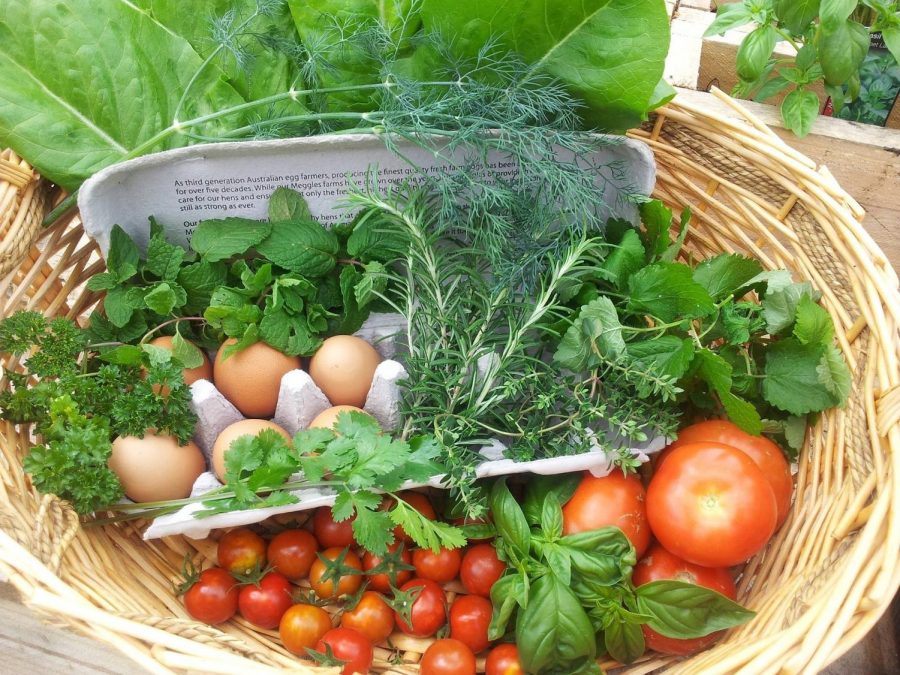We are fortunate to have a great selection of restaurants at our disposal, especially for a small community like the Copper Country! While all of these dining establishments pride themselves on featuring delicious foods, locally-sourced foods and options for those with dietary restrictions can be hard to come by. In a rural area with a climate like the Keweenaw’s, sustainable options for small businesses, like family-owned restaurants, can also be difficult to procure. Students from Michigan Tech’s Sustainability Demonstration House (SDH) and Students for Sustainability (SFS) group have started an initiative to measure the sustainability of our local restaurants, and they need your help to implement this project!
According to Rose Turner, SDH Coordinator, “The purpose of this project is to educate the Keweenaw community and our local restaurants on the importance of sustainable dining.” This includes prompting restaurant owners and customers alike to think about the impact on the earth of eating out at certain restaurants. Turner hopes sustainable practices will become common knowledge following the SDH’s project. Maybe restaurant owners will think twice before sending their food wastes directly to the landfill, and maybe restaurant patrons will consider whether or not they really need to use a plastic straw.
Their mission for sustainability is broken down into three phases. Phase One requires the public’s help, and gives you a great excuse to treat yourself to a delicious meal from one of our local restaurants. After eating in-restaurant or at home via takeout, the SDH is asking that participants fill out this Google Form to rate their dining experience in terms of sustainability. The form questions are specific to your dining experience, like what type of food you ate, whether you ate at the restaurant or got takeout, and more.
Phase Two involves the SDH and SFS teams analyzing the menus of local restaurants to see how many vegetarian and vegan options they offer. Besides allowing for a wider range of customers, like those with dietary restrictions, vegetarian and vegan options often pose a smaller impact on the environment than those that include meat and animal products. Food wastes from vegetarian and vegan options can also often be composted, which lowers the amount of waste from these restaurants that is being sent directly to the landfill. According to Turner, some local restaurants, like B. Well Cafe, are already doing a great job in offering such options.
Phase Three brings the SDH students in direct contact with local restaurant owners as they interview them on what sustainability practices they have already incorporated into their businesses, and what they could be doing better. This includes things like where they source their foods, what they do with their waste, and the type of materials they offer to customers during their dining experience.
“We hope that this initiative results in restaurants prioritizing their sustainability,” Turner says. “We really want restaurants to learn from each other and share their sustainability tips and practices.” Turner is happy that many local restaurants are already incorporating these sustainable practices into their businesses. Examples include B. Well Cafe’s use of compostable utensils and the Library sending their used cooking oil to Sanimax to be turned into biofuels.
When the initiative is complete, the SDH and SFS will be compiling their results and sharing them with the public. They will also be sharing sustainability tips and best practices with local restaurants, and also examples of what some neighboring restaurants are already doing. “We want this to be a really positive initiative,” Turner says. “It doesn’t help to bash any restaurants for not being as sustainable as they could be. Just like the members of our community, all of our restaurants are at different points in their sustainability journey.” She says that it’s crucial for sustainability groups like the SDH and SFS to meet the restaurants in the middle, and provide support and guidance as they find their way to sustainability. The groups are hoping that the results produce a ripple effect in the Keweenaw, and that once business owners see what others are doing to improve their environmental footprint, they will, too.
For more information on the Keweenaw Restaurant Sustainability Initiative, you can contact the Sustainability Demonstration house by email at sdh@mtu.edu. You can consult the posters on campus, which is included below.





